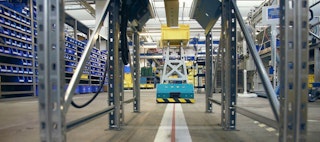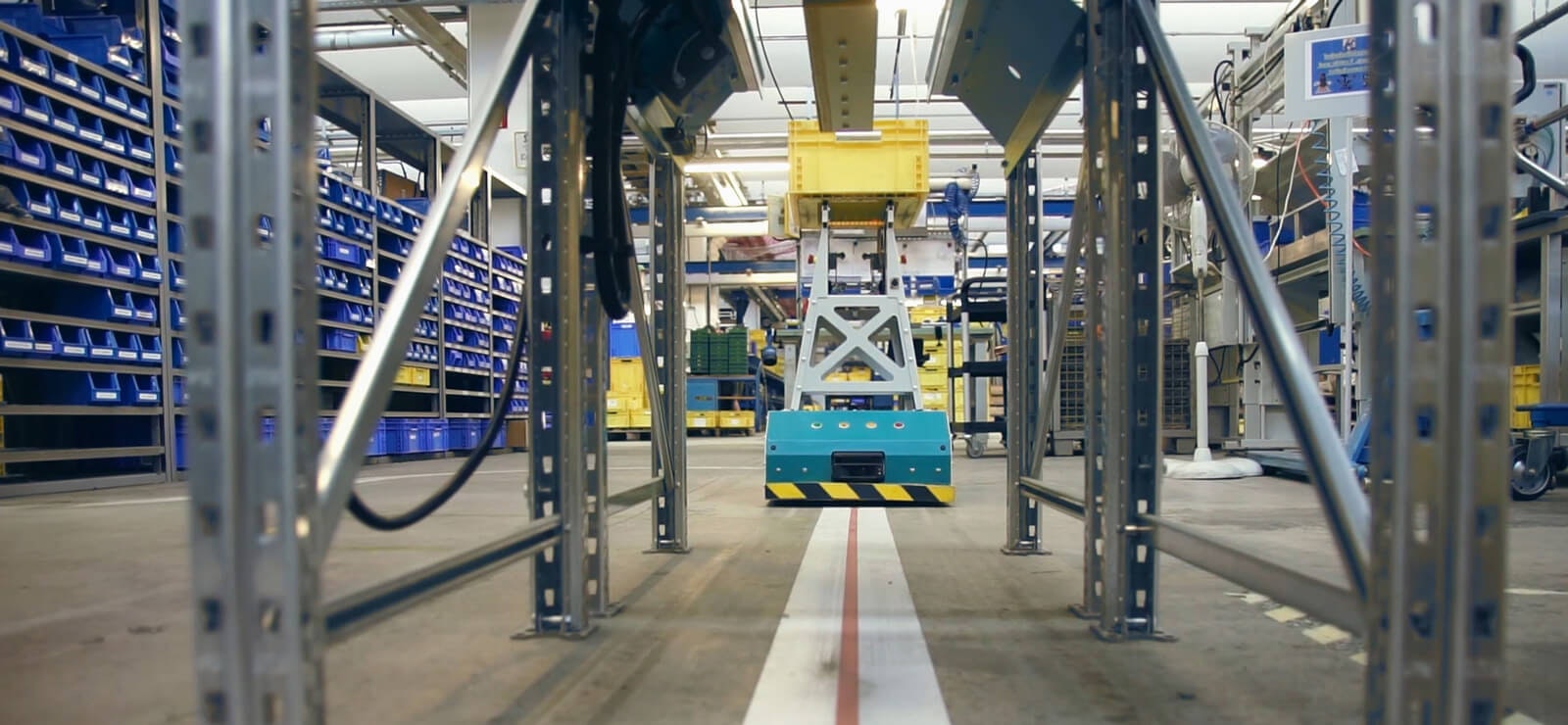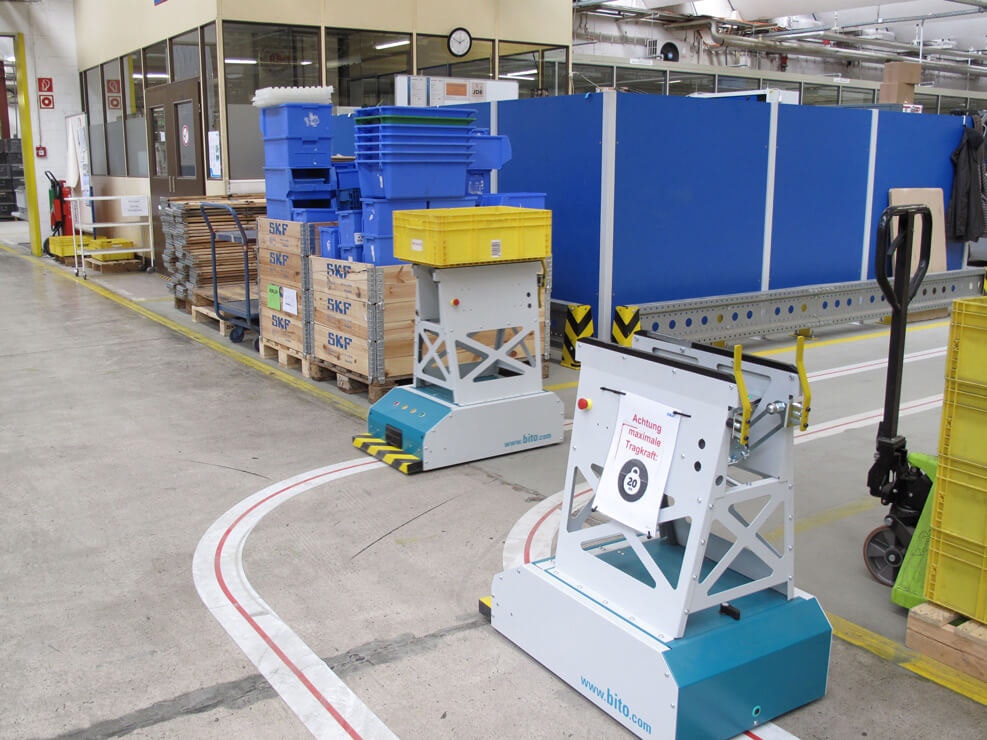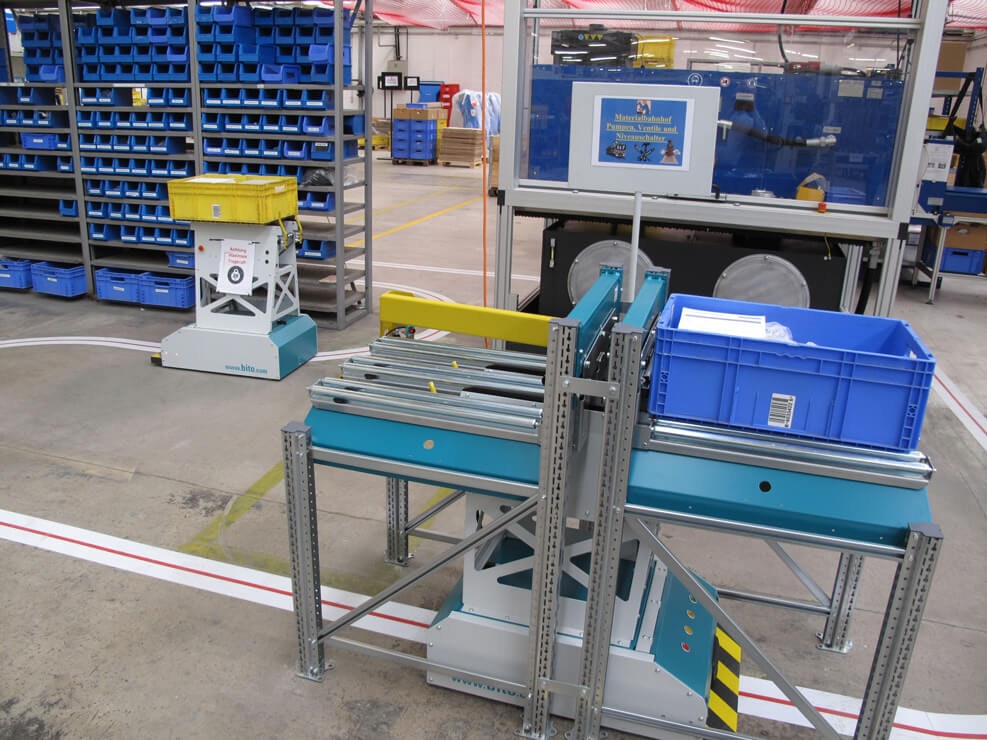About the client
SKF Lubrications Systems GmbH in Berlin, SKF division, manufactures customer-specific centralized lubrication systems. Various types of components are required for production - these are approx. 70,000 active fixed parts kits from suppliers. Ok. 19,000 items are ready in stock. Parts that are not in stock or missing must be constantly re-ordered.
Initial situation and customer requirements
- In the past, the ordered missing parts were collected by employees and packed on pallets after they arrived at the goods reception
- The parts were only released to the assembly stations when the pallet was fully loaded
- The collection was time-consuming making the waiting time and downtime of the pallet, i.e. missing parts, very long
- LubSys wishes to consistently work on further development towards Industry 4.0
- The goal is to follow the path of Lean Transformation at the Berlin plant
- The assembly of pump sets and small parts should be quickly and easily fed with components weighing up to 30 kg
- Automation of in-house transportation routes should result in the optimization of value creation processes
- In-house transportation times - especially waiting times and transit times - must be reduced
- The transport system must be customer oriented
- Great flexibility
- Ease of implementation
- Low purchase costs
The BITO solution
- LEO Locative - container transporter without an operator
»Currently, two transport systems without an operator, LEO Locative, work continuously for the transport of light containers and cartons, which connect workstations with each other
- Transfer stations
»Transporters enter the system's stop stations, independently arranged by the customer, according to his needs, and hand over the containers or take them over
- Easy handling and assembly
»The client, in accordance with his requirements, made a circular route of 300 m length, sticking the track on which the transporter moves with the help of the coloured adhesive tape included in the starter kit
- Cost-conscious
»Purchase costs are low - goods are easily transported without operator intervention, without the need for a fault-prone, expensive system




